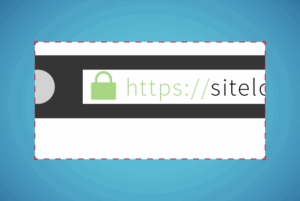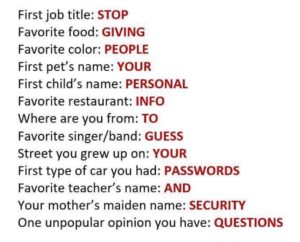Scam-Smart
Stay Scam Smart with Croí Laighean Credit Union
Fraudsters are getting sneakier, but together we can stop them in their tracks. At Croí Laighean Credit Union, your safety always comes first. Here are some quick and easy ways to spot a scam, stay safe online, and protect your hard-earned cash.
Current Scams Targeting Credit Union Members
2 new scams targeting Irish Credit Union Members [12/02/2026]
Scam #1: The message claims that recipients may qualify for a “€1,500 electricity grant” if they have saved with their Credit Union and directs them to apply via the website “union-credits.com”.
This website is not affiliated with any legitimate Credit Union and appears to be part of a phishing campaign designed to harvest personal and financial information.
Scam #2: The message creates urgency by referencing the creation of a new payee. They use a Dublin-based phone number for the member to call, making it seem legitimate and prompting the member to make immediate contact with the fraudster.
If a member calls the number provided, they are likely speaking directly with a fraudster who may attempt to:
- Obtain online banking login credentials
- Request part or all of the member’s PIN
- Request One-Time Passcodes (OTPs)
- Direct the member through urgent “security steps” designed to facilitate account takeover.
Never call numbers provided in unsolicited text messages – always use the official contact number listed on the credit union’s website or bank card. Remember, NEVER share PINs, login details, or One-Time Passcodes (OTPs) with anyone.

Scam targeting Irish Credit Union Members 2/12/2025.
The number looks legit as it looks Irish number but it’s a ‘cost trap’ number. A “cost trap call” refers to a scam where a malicious app initiates expensive calls to premium-rate numbers without the user’s knowledge, potentially leading to high phone bills.

Below is a screenshot of a current scam text that is targeting Credit Union Members. As you can see from the web address, they are directing you to a fake website ‘mycuireland’, and the ‘im’ domain is hosted in the Isle of Man. If you are in doubt, please contact us on freephone 1800 232425.

Types of Scams to Watch Out For
💻 Spoofing
Scammers can be sneaky — they make it look like you’re getting a message from a trusted source, like your Credit Union, your bank, or even the Gardaí. They fake phone numbers, email addresses, or website links to trick you into believing they’re legit. Always double-check before you click, call, or reply!
📧 Phishing
This is when fraudsters send emails pretending to be from a genuine organisation — like your Credit Union or a service provider — trying to get your personal or banking info. They’ll often include fake links or urgent messages to make you panic. Remember: if it feels off, it’s probably a phish!
📞 Vishing (Voice + Phishing)
This one happens over the phone. A scammer might call pretending to be from your Credit Union, a bank, the Gardaí, or even a company like your broadband provider. They’ll sound convincing, but don’t be fooled — no genuine organisation will ever ask for your PIN, password, or to transfer money over the phone.
📱 Smishing (SMS + Phishing)
This scam comes by text message, claiming to be from a reputable company. It might say your account’s “on hold” or needs “verification.” Don’t click the link, don’t call the number, and don’t panic — it’s a scam. Delete it, and contact your Credit Union directly if you’re unsure.
🌐 Typosquatting (Sneaky Fake Websites)
This is one of the oldest tricks in the scammer’s book! They set up fake websites that look almost identical to real ones — maybe a letter swapped, a sneaky hyphen added, or a different ending like “.info” instead of “.ie”. One tiny typo can lead you straight into their trap.. Always double-check the web address before you click or log in!
Common Scam Tactics to Watch Out For:
⚠️ Got a strange text from your Credit Union or Bank?
Don’t click, don’t call — it’s a scam! Always contact your Credit Union or Bank directly.
⚠️ Fraudsters are getting smarter — don’t let them win!
Never share one-time passcodes or account info by text or call.
⚠️ If it smells fishy, it’s probably phishy!
Don’t click strange links — ring your Credit Union or Bank, not the scammer!
⚠️ Your Credit Union will never text asking for personal details.
Sure, we already know who you are!
⚠️ Got a call claiming there’s a “problem” with your account?
Hang up, take a breath, and ring your Credit Union or Bank.
⚠️ Got a message saying your account’s been locked or “on hold”?
Don’t click that link — it’s a scam! Your Credit Union will never ask you to “verify” your account by text or email. Just ignore it and give us a quick ring instead.
⚠️ Don’t let scammers take your hard-earned cash!
Guard your PIN like you’d guard your Granny’s biscuit tin.
⚠️ Texts saying “urgent” or “act now”?
That’s scammer language. Pause before you pay — check before you click.
⚠️ “Dear Mum & Dad… I’ve lost my phone!”
Classic scam! Always double-check before sending money.
⚠️ If it feels off — trust your gut.
Hang up, check with your Credit Union or Bank, and stay one step ahead.
⚠️ Scammers love panic.
Don’t rush, don’t click, and don’t call the number they give you — use the official contact number instead.
⚠️ Scammers might sound official, but they’re after your info.
Keep calm, hang up, and call your Credit Union or Bank directly.
⚠️ If someone asks for your PIN or password — hang up!
Real financial institutions never ask for your personal details.
⚠️ Spoofing makes scammers look real — even showing a legitimate number!
Hang up, look up the real contact, and call back safely.
Online & Social Media Scams
CHECK for spelling errors, broken links, and missing social media badges on websites.

If you’re not sure about a website, check it on Fraudsmarts scam checker tool: https://fraudsmart.scamchecker.ie/
Social Media Messages: Scammers might pose as friends or family asking for cash — check another way before sending money.
Giveaways, free trials, or “free” prizes: If it sounds too good to be true… it is. If the new iPhone or PlayStation is impossible to get, yet someone on social media has loads of them… they don’t!
Be cautious about sharing too much information on social media. You know those quizzes that ask you random questions, like what age you were in 1990? They’re designed to extract information to help guess your security questions so they can reset your password. Common security questions often ask for personal information such as “What is your mother’s maiden name?”, “What is the name of your first pet?”, or “In what city were you born?” and so forth.

Quick Tips to Stay Scam Smart
-
Never share your personal or banking info over text, email, or phone.
- Avoid using public Wi-Fi when making online payments; always switch to a personal network like 3G or 4G.
-
Don’t click on links or attachments from unknown senders.
-
Use strong passwords and change them regularly. Don’t use the same password for multiple accounts.
- Where possible, use two-factor authentication (2FA) such as Google Authenticator and Microsoft Authenticator.
-
Keep your phone and banking apps up to date.
-
Report any suspicious activity straight away.
Think You’ve Been Scammed? Don’t panic — act fast.
-
Contact your Credit Union or Bank immediately.
-
Report the scam to Gardaí.
Your Credit Union is here to help — no judgment, just support.
Remember…
We’re your Credit Union — local, trusted, and always on your side. If something doesn’t feel right, check with us first. It could save you a lot of stress (and money!).



